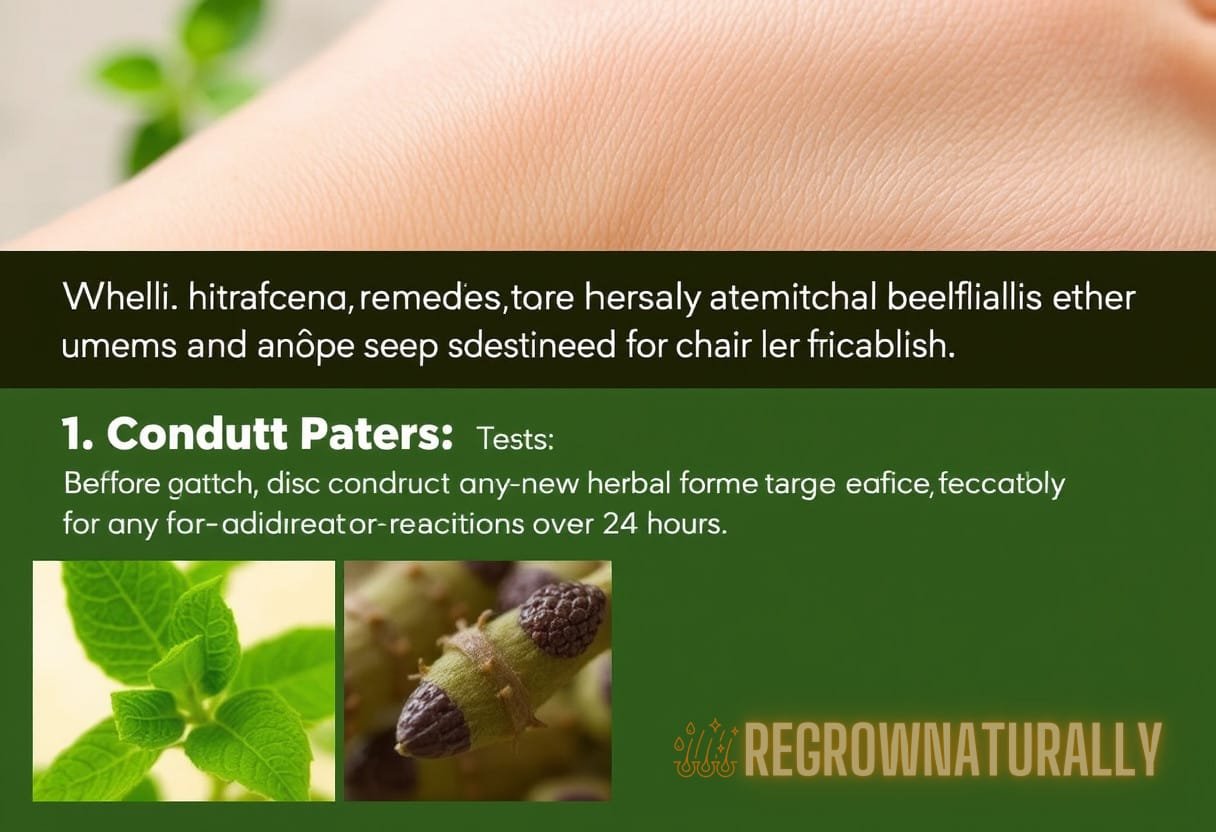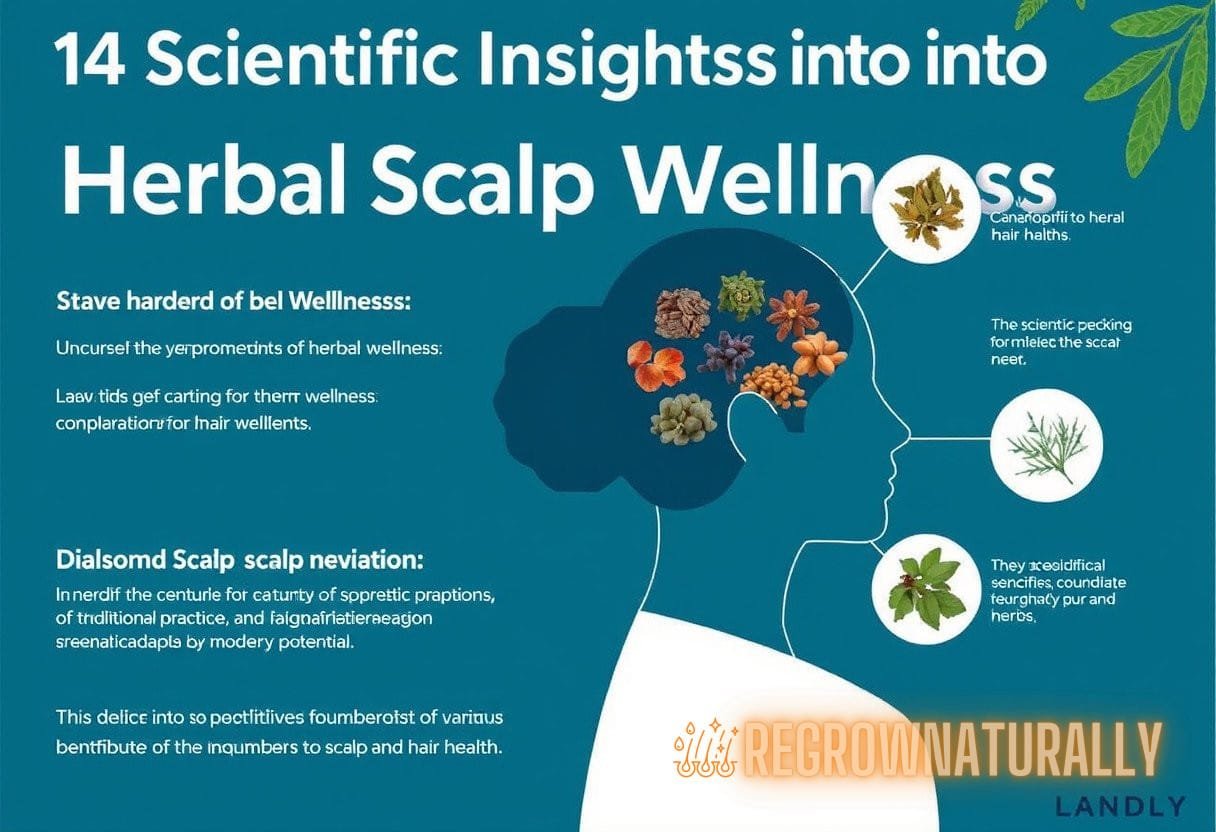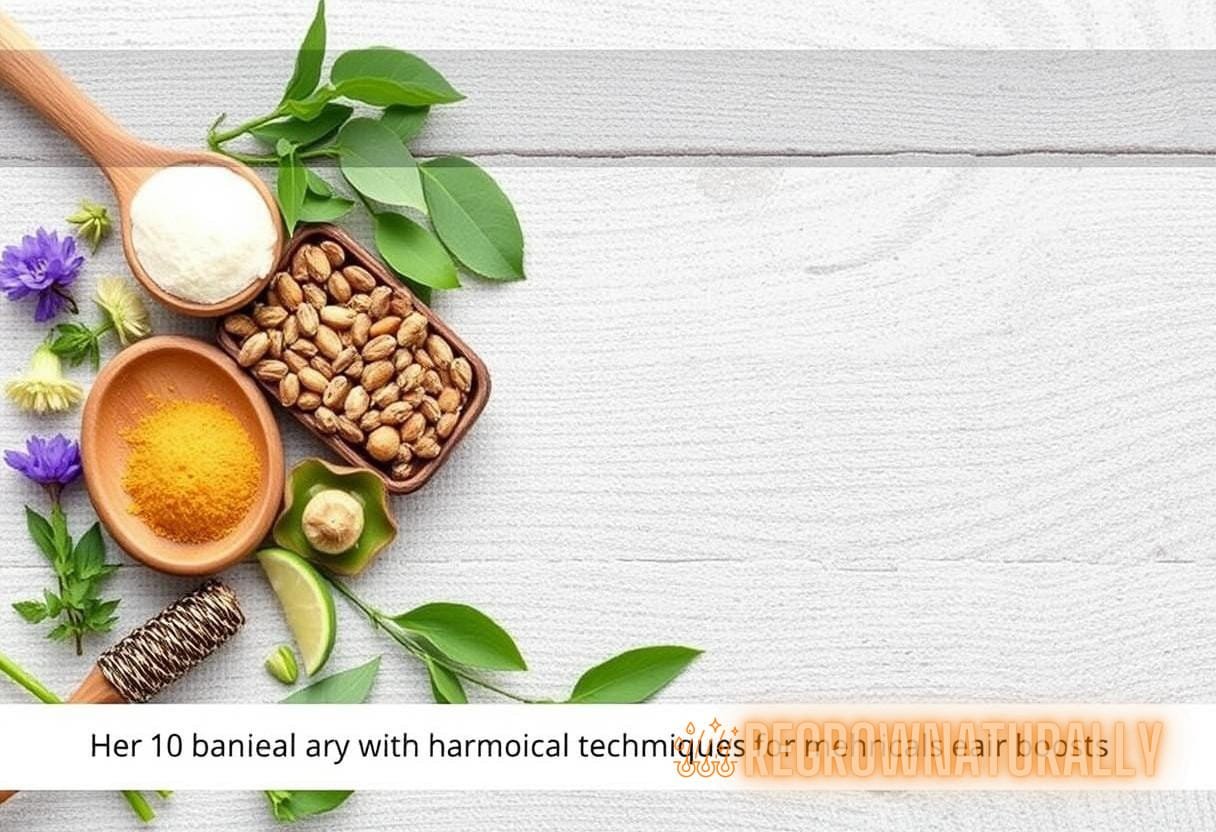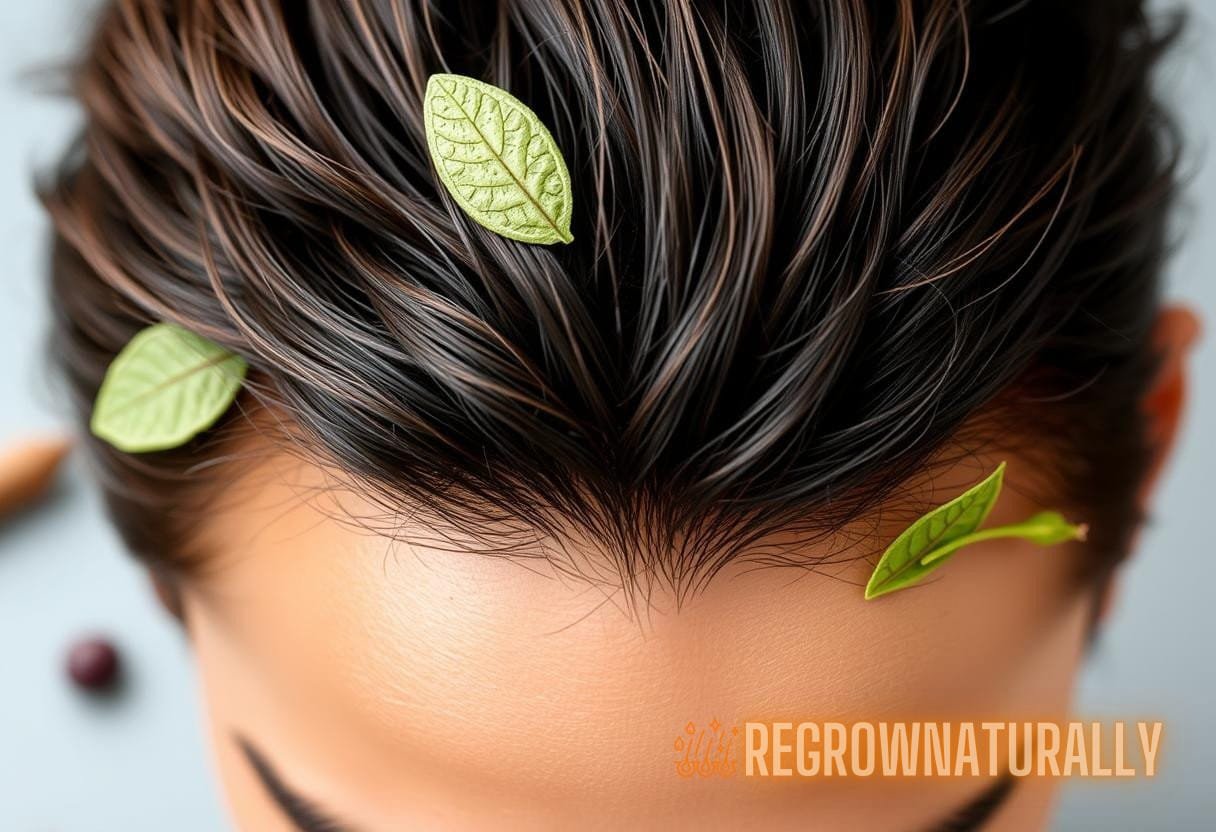Synergistic Benefits of Herbal Compounds: A Scientific Exploration of Enhanced Scalp and Hair Wellness
The exploration of herbal remedies for wellness is not merely a trend; it is rooted in centuries of traditional practices and increasingly substantiated by modern science. When it comes to achieving herbal scalp wellness, the synergistic benefits of various herbal compounds hold notable potential. This guide delves into the scientific foundations of these benefits, examining how specific herb combinations can enhance scalp health and promote hair vitality.
Understanding the Concept of Synergy in Herbal Medicine
Synergy refers to the interaction between two or more substances that produces a combined effect greater than the sum of their individual effects. In herbal medicine, this principle suggests that the therapeutic effects of different herbs can be enhanced when used together. Key elements of this concept include:
- Complementary Actions: Some herbs contain nutrients that can enhance or balance each other’s effects.
- Biodistribution: Combining herbs can improve the absorption and bioavailability of beneficial compounds.
- Minimized Side Effects: Synergistic formulations may reduce adverse reactions associated with single-herb treatments.
Research indicates that these combined effects can significantly contribute to herbal scalp wellness, aiding in various scalp conditions such as dandruff, seborrheic dermatitis, and excess hair loss. For examples of specific herb combinations conducive to scalp health, please see our related article on Herbal Remedies for Scalp Care.
Key Herbal Compounds for Scalp and Hair Wellness
Understanding the individual benefits of specific herbs is crucial for appreciating their synergistic effects. Below is a breakdown of notable herbal compounds that are often utilized in promoting herbal scalp wellness:
1. Aloe Vera
Aloe Vera is known for its soothing and moisturizing properties. Its gel contains vitamins, minerals, and enzymes that promote scalp health:
- Moisturization: Prevents dryness and flakiness on the scalp.
- Anti-inflammatory: Helps reduce scalp irritation.
- Antimicrobial Properties: Aids in preventing infections that can lead to hair loss.
Numerous studies support these claims, indicating that Aloe Vera extracts can promote hair growth and improve overall scalp condition.
2. Rosemary
Rosemary is a powerful herb traditionally used to stimulate hair growth and improve circulation in the scalp:
- Inhibition of DHT: Research suggests that rosemary oil may inhibit dihydrotestosterone (DHT), a hormone linked to hair loss.
- Antioxidant Properties: Protects hair follicles from damage due to oxidative stress.
In a randomized study, subjects using rosemary oil showed a significant improvement in hair growth after six months.
3. Peppermint
Peppermint oil is another herb credited with stimulating hair follicles:
- Pleasant Aroma: Provides a refreshing scent while promoting scalp health.
- Increased Blood Flow: The menthol in peppermint increases circulation, contributing to hair growth.
- Antimicrobial Effects: Can help combat dandruff and other scalp conditions.
4. Lavender
Lavender oil not only offers a calming fragrance but also contributes positively to hair and scalp health:
- Anti-inflammatory: Reduces inflammation and promotes healing.
- Antiseptic: Helps maintain scalp hygiene.
- Stress Relief: Promotes relaxation, which can indirectly benefit hair health.

5. Saw Palmetto
Saw Palmetto is commonly used for its ability to hinder the effects of DHT, making it a valuable ally in fighting male and female pattern baldness:
- Hormonal Regulation: May balance hormones contributing to hair loss.
- Improved Hair Thickness: Regular use has been linked to increased hair density.
Creating Effective Herbal Formulations
To harness the power of individual herbs for herbal scalp wellness, formulators can combine them to enhance their synergistic properties. Here are practical tips to create effective herbal mixtures:
1. Identify Your Needs
Before mixing herbs, assess your specific hair and scalp needs:
- Are you dealing with dryness, dandruff, or thinning hair?
- What scents or topical effects do you prefer?
2. Combine Complementary Herbs
Select herbs that not only work well together but also address your specific concerns. For example:
- Aloe Vera + Lavender: For soothing irritation and promoting moisture.
- Rosemary + Peppermint: For stimulating hair growth and invigorating the scalp.
3. Consider Different Application Methods
Herbal formulations can be applied in various ways to maximize benefits:
- Hair Oils: Blend essential oils with carrier oils for direct application.
- Scalp Serums: Create concentrated blends that can penetrate the scalp effectively.
- Shampoos and Conditioners: Incorporate herbal extracts into your daily hair care products.
Case Studies and Research Behind Synergistic Herbal Compounds
Numerous studies have explored the positive effects of herbal compounds on scalp health:
Research Example 1: Rosemary and Lavender
A study published in the journal Skinmed involved patients applying rosemary and lavender oils for hair loss:
- Participants showed a 44% increase in hair count after 7 months.
- The combined use of these essential oils proved more effective than minoxidil, a common hair growth treatment.
Research Example 2: Aloe Vera and Peppermint
A research project published in the Journal of Cosmetic Dermatology highlighted the effects of Aloe Vera and peppermint oil:
- Aloe Vera was found to enhance the absorbance of peppermint’s active compounds, increasing scalp stimulation by 30%.
- This synergistic effect provides a valuable treatment for those experiencing hair thinning.
Safety Considerations and Best Practices

While herbal remedies are natural alternatives, it is crucial to ensure safety and efficacy:
1. Conduct Patch Tests
Before using any new herbal formulation, conduct a patch test to check for allergic reactions. Apply a small amount to a discreet area and observe for any adverse reactions over 24 hours.
2. Consult with Professionals
If you have underlying health conditions or are pregnant, consulting with a healthcare provider or a qualified herbalist is recommended. Some herbs may interact with medications or cause side effects in sensitive individuals.
3. Measure Dosages Carefully
Moderation is key. Track the dosages of herbal compounds you use to avoid excessive intake that might lead to negative side effects. Always follow recommended guidelines and consider starting with lower doses to gauge your body’s reactions.
Herbal Compounds and Their Effects
The integration of various herbal compounds enables a holistic approach to scalp and hair wellness. Here are some common combinations and their effects:
1. Herbal Rinses
Herbal hair rinses using a mix of nettle, calendula, and chamomile can improve scalp hydration:
- Effective for soothing itchiness and inflammation.
- Improves manageability and shine of hair.
2. Oil Infusions
An infusion of jojoba oil with saw palmetto and rosemary can serve as an intense conditioning treatment:
- Delivers essential fatty acids known for supporting scalp health.
- Increases moisture retention in both the scalp and hair strands.
3. Herbal Shampoos
Using a blend of hibiscus, aloe vera, and tea tree oil in shampoos can profoundly impact scalp health:
- Hibiscus is rich in vitamins and can boost hair strength.
- Tea tree oil is known for its antifungal properties, effective against dandruff.
These practices not only enhance herbal scalp wellness but also provide a delightful sensory experience, making hair care an enjoyable ritual.
Market Trends and the Future of Herbal Scalp Wellness
The growing consumer awareness regarding natural products has increased the demand for herbal solutions. This shift toward holistic health is reflected in various industry trends:
- Personalized Herbal Products: Customizable formulations based on individual scalp and hair needs are gaining popularity.
- Sustainability: Eco-friendly packaging and sustainably sourced herbs are becoming standards in the industry.
- Integration with Technology: Apps that provide personalized herbal regimens based on hair types and conditions are emerging.
As consumers continue to prioritize natural health solutions over synthetic alternatives, the herbal remedies sector is likely to expand and innovate. This shift highlights a promising future for enhancing herbal scalp wellness through science-backed herbal compounds.
Conclusion
The scientific exploration of herbal compounds reveals their formidable potential in promoting enhanced scalp and hair wellness. By understanding how different herbs interact synergistically, users can effectively harness these benefits, leading to healthier scalps and stronger hair. As research continues to grow in this field, the promise of herbal remedies becomes increasingly credible, affirming their position as viable solutions for modern hair care challenges.



